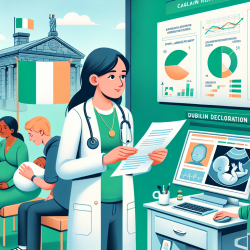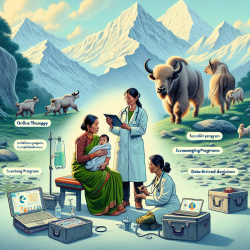Empowering Change: Building a Future for Primary Care Physicians
In the ever-evolving landscape of health care, the role of primary care physicians (PCPs) is pivotal. The recent recommendations from the Organized Medicine Academic Guild (OMAG) provide a comprehensive framework to redefine and enhance the delivery of primary care in India. This blog delves into these recommendations, offering insights for practitioners to improve their skills and encourage further research in the field.
The Current Health Care Model: Challenges and Opportunities
India's health care system is currently characterized by a focus on urban-centric, hospital-based, and specialty-driven care. Despite producing a significant number of medical graduates annually, the distribution of doctors remains skewed towards urban areas, leaving rural communities underserved. The current model often results in fragmented care, with limited roles for PCPs and a lack of integration between different levels of care.
A Novel Health Care Delivery Model
The OMAG proposes a novel health care delivery model that emphasizes the development of a cadre of PCPs. This model aims to provide comprehensive, person-centered care that spans from health promotion and prevention to treatment, rehabilitation, and palliative care. Key components of this model include:
- Universal Access: Ensuring equitable access to health care services across geographies without excessive financial burden.
- Fair Distribution of Resources: Allocating health resources based on population needs and ensuring continuous improvement in care delivery.
- Training and Accountability: Developing competent and empathetic health care providers through targeted training programs.
- Focus on Vulnerable Groups: Prioritizing the health needs of children, women, the disabled, and the elderly.
Implementing the Model: Steps for Practitioners
For practitioners, the implementation of this model offers an opportunity to enhance their skills and contribute to a more equitable health care system. Here are some steps practitioners can take:
- Engage in Continuous Learning: Stay updated with the latest clinical management guidelines and participate in training programs designed to enhance primary care skills.
- Collaborate with Other Health Professionals: Build strong networks with other health care providers to ensure continuity of care and efficient referral systems.
- Advocate for Policy Changes: Engage with policymakers to support the implementation of the novel health care delivery model and address systemic challenges.
- Focus on Community Needs: Tailor health care services to meet the specific needs of the community, ensuring that care is person-centered and culturally sensitive.
Encouraging Further Research
While the OMAG's recommendations provide a solid foundation for improving primary care delivery, further research is needed to evaluate the effectiveness of the proposed model and identify areas for improvement. Practitioners are encouraged to participate in research initiatives and contribute to the growing body of evidence supporting primary care innovation.
To read the original research paper, please follow this link: A health care delivery model focusing on development of a cadre of primary care physicians—Recommendations of Organized Medicine Academic Guild.










